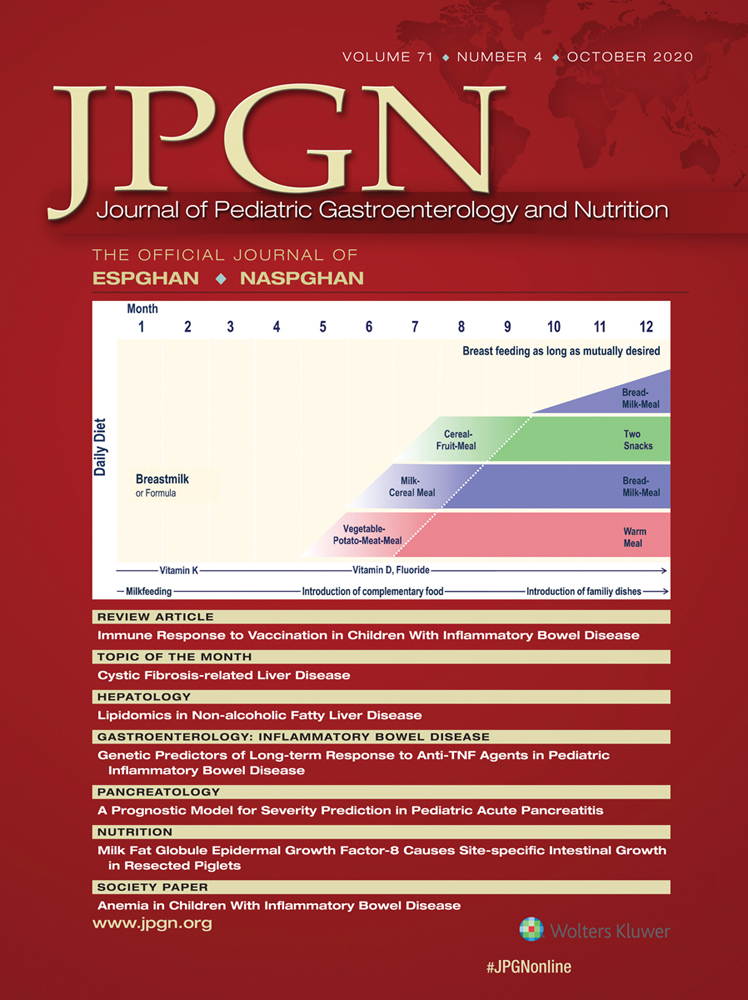WD Repeat Domain 1 (WDR1) Deficiency Presenting as a Cause of Infantile Inflammatory Bowel Disease
Drs Aarti Kamat and Jenna Millstead contributed equally to the preparation of this manuscript.
P.F. received grant from the Cystic Fibrosis Foundation. N.H. has served as a speaker and is on the advisory board for Horizon Pharmaceuticals. N.H. serves as a speaker for Takeda Pharmaceuticals. N.H. has served on advisory board for Orchard Therapeutics. J.M., A.K., U.D., A.A.M., D.D., J.S., and JP report no conflicts of interest.
Ethical consideration: Patient's parents have consented to the publication of this case.
Supplemental digital content is available for this article. Direct URL citations appear in the printed text, and links to the digital files are provided in the HTML text of this article on the journal's Web site (www.jpgn.org).
ABSTRACT
Infantile and very early onset inflammatory bowel disease (VEOIBD) are a rare phenomenon wherein patients develop intestinal inflammation with typical IBD symptoms before ages 2 and 6, respectively. In recent years, there has been an increasing number of monogenetic immunological disorders identified that lead a child to develop VEOIBD. We present a case of an infant boy who presented with hematochezia and thrombocytopenia in the first week of life and developed IBD by the age of 1 month. Additional clues to his diagnosis included lymphopenia and nuclear herniation observed in his neutrophils. Compound heterozygous damaging variants were identified in WD Repeat Domain 1 (WDR1) by whole-exome sequencing (WES) and represents a novel cause of VEOIBD. Our patient's IBD and immunologic phenotype was successfully treated by hematopoietic stem cell transplant (HSCT).




